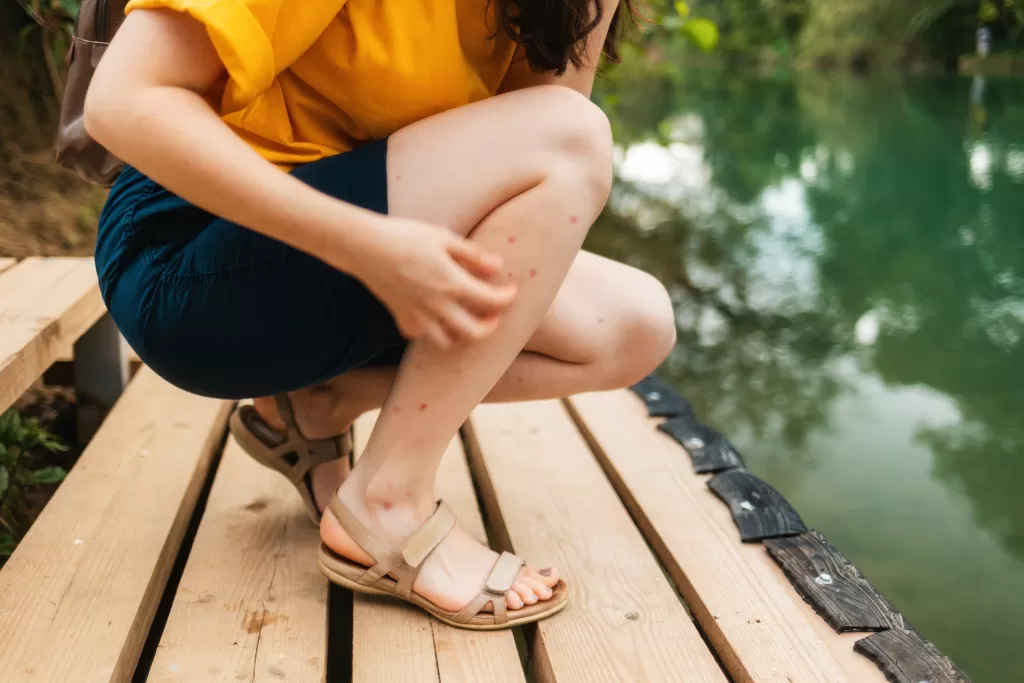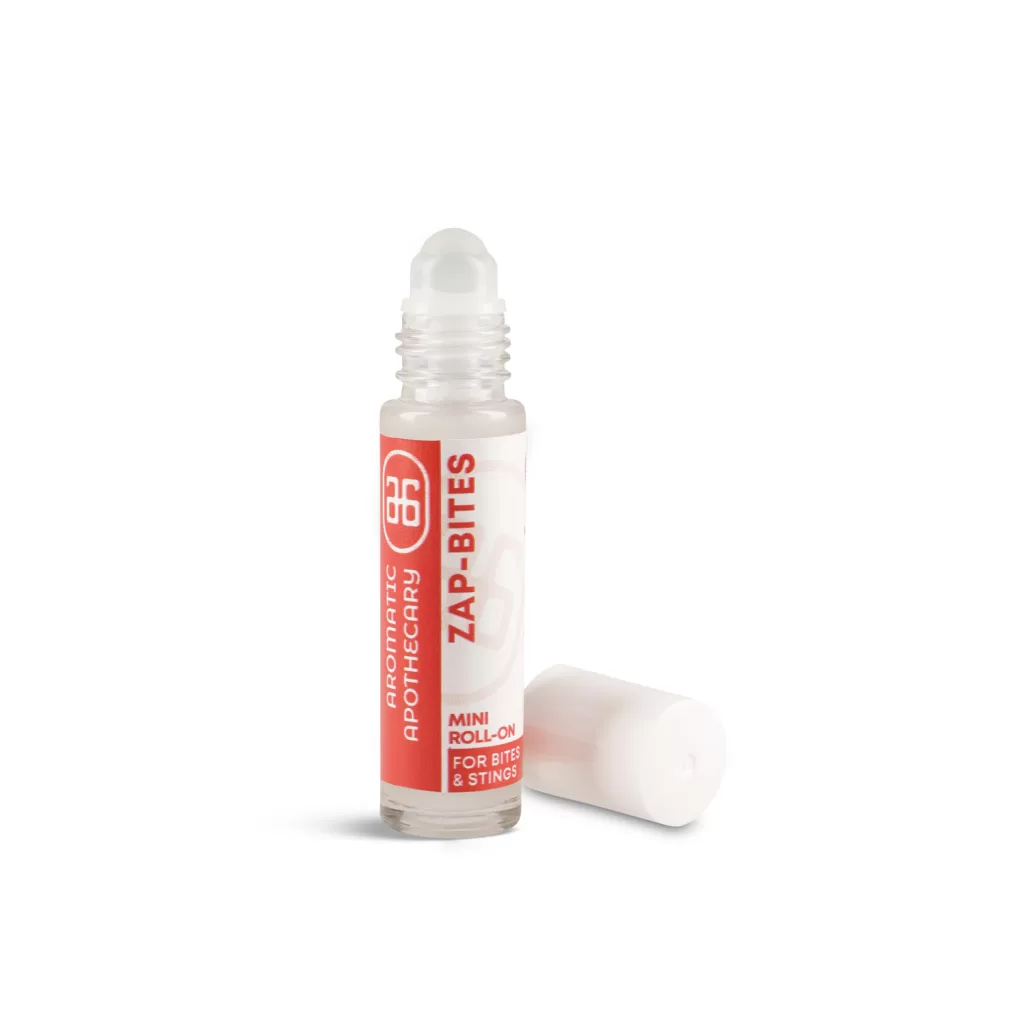Summer is here, and while that means lovely sunny days and warm nights, it also brings us into closer contact with more insects, especially the flies, mosquitoes and spiders that flourish during the warm weather. More time outdoors also increases the chances of encountering stinging critters such as bees and wasps, and if you’re planning a South African beach holiday, you’re going to have to look out for bluebottle stings. Whether you are camping, hiking, going on safari or simply spending more time mountain-biking, beach-going, picnicking or braaiing in the back garden, you’re going to need to protect your personal space and body.
“We need to take a two-prong approach,” says qualified pharmacist, aromatherapist and the founder of Aromatic Apothecary, Doryce Sher. “On the one hand, when it comes to mozzies and flies, we want a safe deterrent that effectively reduces the number of these annoying insects around us. However, insect bites and stings are still likely occurrences during the summer months, and therefore we must focus also on quickly relieving itches and stings. This is crucial because scratching at already inflamed insect bites not only further traumatises the skin, but leaves us vulnerable to infections, which can become serious because bacteria also thrive in the warmer season.”
Stop the itch and heal the bite
The Aromatic Apothecary Zap Bites mini roll-on is a handy all-natural solution to relieve both the inflammation and the terrible itch that comes with insect bites. Doryce says, “This unique blend of camomile, tea tree and lavender in sanitising gel base is a fast-acting, natural treatment that will prevent scratching. Camomile and lavender are powerfully soothing with antihistamine and anti-inflammatory properties, while tea tree acts as a natural antibiotic.” The beauty of an aromatherapy solution though is that the blend is greater than the sum of its parts, and it can effectively calm allergic reactions. The roll-on format means that you can apply the solution directly to the bite. An added benefit is that the tea tree and alcohol gel base relieves the itch and is anti-infectious and sanitising. It’s fantastic for travelling and taking on holiday, easy to slip into a backpack, beach bag or pocket for quick and easy use on a safari game drive or sitting around a campfire. Zap Bites is perfectly safe for children and can be applied frequently to calm down the itch every time it arises. Regular use gives your body the chance it needs to resolve the allergic reaction to the bite while protecting the integrity of your skin.
Doryce’s top tips for keeping the bugs away include:
Cover up with light coloured clothing – Lightweight, long-sleeved shirts, long pants and sheer socks that cover the ankles go a long way to helping you avoid mosquito bites, especially in the early morning and at night when they are most active. Choose light colours because mozzies are more drawn to darker tones.
Check that your holiday accommodation has mozzie-proofing – Door and window screens, fans and air-conditioning all help to deter mosquitoes while you sleep. Mosquito nets are highly effective and are essential if you are visiting a malaria area.
Choose a natural insect repellent – The most important consideration when it comes to using insect repellents, especially on or around children, is making sure the ingredients are non-toxic. You don’t want to inhale or rub in something that works against insects but is detrimental to people too. The Aromatic Apothecary Bugs Away spray repellent is based on a carefully formulated blend of geranium, citronella, lemongrass and lavender that is safe to use on the body and surrounds. You can apply it directly to exposed skin, clothes and linen without worrying about what you are inhaling. You will also enjoy the scent!

Tap into local beach advice – Bluebottle stings can be a painful reality on South African beaches, especially in the warmer summer months like December when these creatures are often more active. Some beaches post warnings if bluebottles are present. Look for warning flags, signs, or chat to local lifeguards who often update conditions. Be particularly aware of bluebottle danger on windy days when they may be blown onshore. Protective swimwear such as wetsuits will help you avoid bluebottle stings.

Doryce concludes, “When it comes down to it, we enjoy our outdoor and holiday time far more if we are not fussing about chasing away insects. We can relax more in our precious time in nature if we are not being aggravated by bites and stings. And we can make sure that we don’t make things worse by scratching at itchy bites. So, defending yourself with fast-acting natural solutions is a great way to ensure that you have a more peaceful and fulfilling summer holiday.”




























